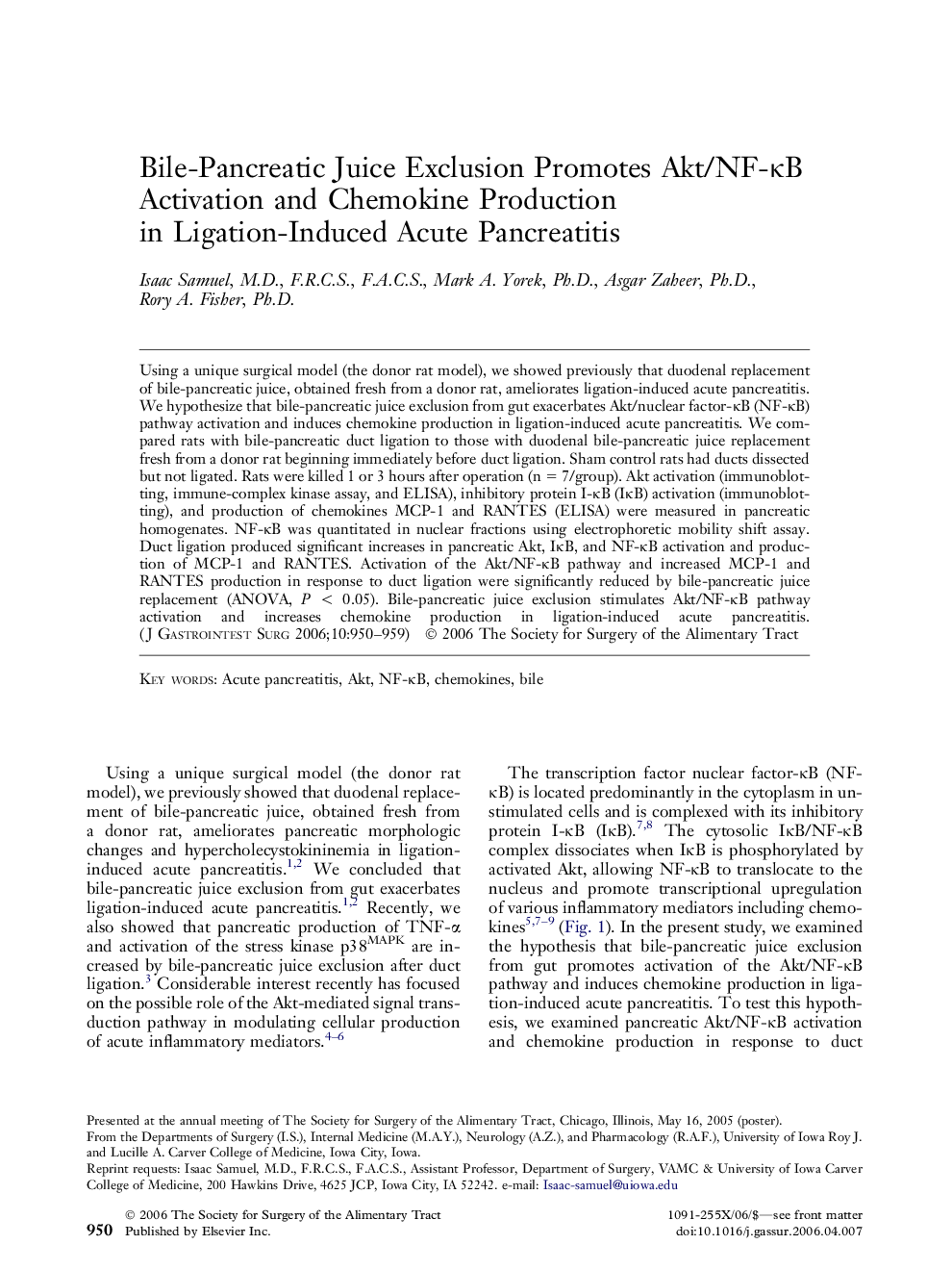| Article ID | Journal | Published Year | Pages | File Type |
|---|---|---|---|---|
| 4297227 | Journal of Gastrointestinal Surgery | 2006 | 10 Pages |
Abstract
Using a unique surgical model (the donor rat model), we showed previously that duodenal replacement of bile-pancreatic juice, obtained fresh from a donor rat, ameliorates ligation-induced acute pancreatitis. We hypothesize that bile-pancreatic juice exclusion from gut exacerbates Akt/nuclear factor-κB (NF-κB) pathway activation and induces chemokine production in ligation-induced acute pancreatitis. We compared rats with bile-pancreatic duct ligation to those with duodenal bile-pancreatic juice replacement fresh from a donor rat beginning immediately before duct ligation. Sham control rats had ducts dissected but not ligated. Rats were killed 1 or 3 hours after operation (n = 7/group). Akt activation (immunoblotting, immune-complex kinase assay, and ELISA), inhibitory protein I-κB (IκB) activation (immunoblotting), and production of chemokines MCP-1 and RANTES (ELISA) were measured in pancreatic homogenates. NF-κB was quantitated in nuclear fractions using electrophoretic mobility shift assay. Duct ligation produced significant increases in pancreatic Akt, IκB, and NF-κB activation and production of MCP-1 and RANTES. Activation of the Akt/NF-κB pathway and increased MCP-1 and RANTES production in response to duct ligation were significantly reduced by bile-pancreatic juice replacement (ANOVA, P < 0.05). Bile-pancreatic juice exclusion stimulates Akt/NF-κB pathway activation and increases chemokine production in ligation-induced acute pancreatitis.
Related Topics
Health Sciences
Medicine and Dentistry
Surgery
Authors
Isaac M.D., F.R.C.S., F.A.C.S., Mark A. Ph.D., Asgar Ph.D., Rory A. Ph.D.,
